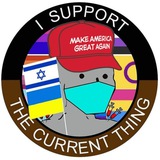Brazil's Fake News Bill Would Dismantle Crucial Rights Online and is on a Fast Track to Become Law
Despite widespread complaints about its effects on free expression and privacy, Brazilian Congress is moving forward in its attempts to hastily approve a "Fake News" bill. We've already reported about some of the most concerning issues in previous proposals, but the draft text released this week is even worse. It will hinder users' access to social networks and applications, require the construction of massive databases of users' real identities, and oblige companies to keep track of our private communications online.
https://www.eff.org/deeplinks/2020/06/current-brazils-fake-news-bill-would-dismantle-crucial-rights-online-and-fast
#eff #brazil #privacy #law
Despite widespread complaints about its effects on free expression and privacy, Brazilian Congress is moving forward in its attempts to hastily approve a "Fake News" bill. We've already reported about some of the most concerning issues in previous proposals, but the draft text released this week is even worse. It will hinder users' access to social networks and applications, require the construction of massive databases of users' real identities, and oblige companies to keep track of our private communications online.
https://www.eff.org/deeplinks/2020/06/current-brazils-fake-news-bill-would-dismantle-crucial-rights-online-and-fast
#eff #brazil #privacy #law
Supreme Court says generic domains like booking[dot]com can be trademarked
The US Patent and Trademark Office erred by finding the term booking.com was too generic for trademark protection, the Supreme Court ruled on Tuesday.
Trademark law prohibits anyone from registering generic terms that describe a class of products or services. Anyone can start a store company called "The Wine Company," but they can't use trademark law to stop others from using the same name. When the online travel giant Bookings Holdings sought to trademark its booking.com domain name almost a decade ago, the US Patent and Trademark Office concluded that the same rule applied.
https://arstechnica.com/tech-policy/2020/06/supreme-court-says-generic-domains-like-booking-com-can-be-trademarked/
#trademark #law
The US Patent and Trademark Office erred by finding the term booking.com was too generic for trademark protection, the Supreme Court ruled on Tuesday.
Trademark law prohibits anyone from registering generic terms that describe a class of products or services. Anyone can start a store company called "The Wine Company," but they can't use trademark law to stop others from using the same name. When the online travel giant Bookings Holdings sought to trademark its booking.com domain name almost a decade ago, the US Patent and Trademark Office concluded that the same rule applied.
https://arstechnica.com/tech-policy/2020/06/supreme-court-says-generic-domains-like-booking-com-can-be-trademarked/
#trademark #law
